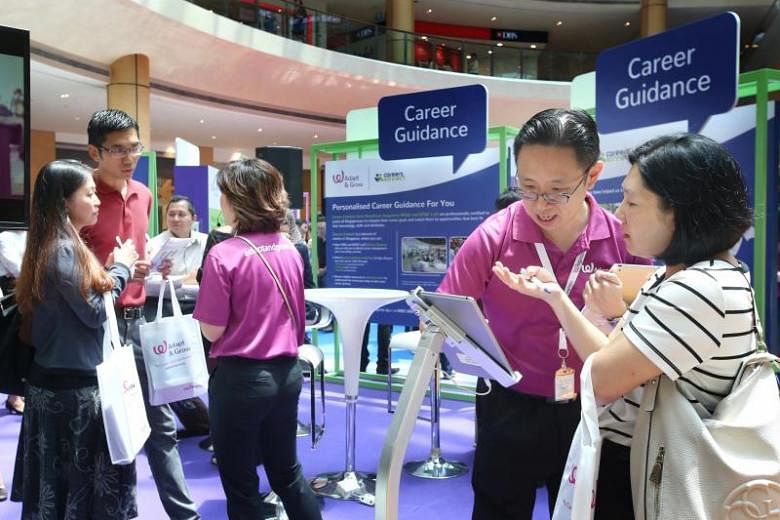SINGAPORE - Job seekers need to identify and learn the right skills to capitalise on job openings as hiring picks up, a Workforce Singapore (WSG) spokesman said on Thursday (Nov 29).
The statutory board said it will continue working to help Singaporeans find jobs, through providing more information on opportunities and finding ways to continually improve job-matching services. It also pledged to enhance its job search website - MyCareersFuture.sg - based on feedback from job seekers and employers.
"With the labour market showing signs of improvement, companies may be expected to increase their hiring activities," the spokesman said.
"Therefore, it is all the more relevant for job seekers to understand market trends, assess the skills requirements of the jobs that they are applying for, and to actively acquire these skills, so as to maximise results in their job searches."
It was previously reported that job opportunities in 2019 are likely to remain good in sectors such as fintech and healthcare, while workers in manufacturing and trade may face more uncertain job prospects given the slower economic growth forecast for next year.
Economic expansion is expected to slow to between 1.5 per cent and 3.5 per cent next year, while growth this year is estimated to come in at between 3 per cent and 3.5 per cent.
Even though the job openings are there, experts said job seekers still lack skills, especially in areas such as cyber security and robotics.
"New skills take time to build and job seekers may need a certain level of specialised knowledge or experience to be able to move into those roles," said National Trades Union Congress assistant secretary-general Patrick Tay.
A study released by the Ministry of Trade and Industry last week (Nov 22) found that a skills mismatch had the biggest impact on job application outcomes, out of six possible mismatches studied, including differences in industries and salary expectations. The study also highlighted the importance of having the right non-generic skills, such as programming languages Java and Python for information and communications jobs, and nursing and physiotherapy for healthcare jobs.
Singapore Human Resources Institute president Erman Tan said the difficulty in solving the skills mismatch lies in training not being able to catch up with industry needs, and relevant skill sets becoming harder to pick up.
"Economic restructuring is moving towards deep skills, as technology is much more sophisticated," he said, adding that cyber security is one area where training seems to lag behind.
Also, users now expect software to be much more user-friendly, secure and better at predicting their wants. "It's no longer just easy programming, like what you saw 10 years ago," he said.
Mr Mark Hall, Singapore country manager for human resource firm Adecco, said there is a significant gap in technical skills related to programming, artificial intelligence, robotics, data analytics and cyber security.
He advised job seekers to identify and acquire skills in-demand through resources such as their companies' learning and development teams, or through apprenticeships and internships in growth sectors.
"We also need closer cooperation between academia and industry to identify skills that the latter will require, so that the future workforce can be trained accordingly and be 'work-ready'," he said.
Learning new skills is how Mr Tommy Tan, 51, plans to start a second career in a growing industry.
After working in engineering for more than 25 years, the degree-holder sought help from a WSG career coach and is now studying to be a registered nurse through a professional conversion programme.
The accelerated diploma course is proving more challenging than he expected, as he has to learn technical skills such as handling patients, as well as soft skills such as communication and managing psychological health.
"It's very different from what I studied in the past, and it's not as straightforward as I thought, but I want to work hard to complete the course," he said.


